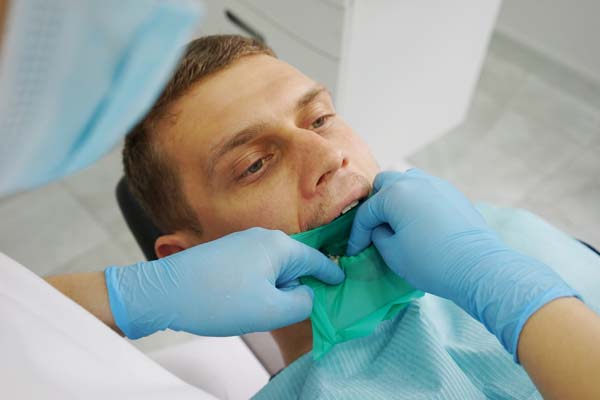Aftercare Tips for Root Canal Therapy

Patients typically do not feel much discomfort during root canal therapy, but there is likely to be discomfort during the recovery process. It is helpful to become familiar with the likely symptoms following root canal therapy and plan in advance on how to make a full recovery in the shortest amount of time possible.
How to recover after a root canal
There are certain care tips that dentists recommend to patients after root canal therapy. The most common issues patients experience include gum swelling and tenderness, difficulty chewing and an increased risk of infection. The following are four tips for how to deal with the uncomfortable symptoms and make the aftercare process easier.
Practice good oral hygiene
Good oral hygiene is an essential step in the root canal therapy aftercare process. This is primarily to ensure there are no issues with the root canal and that the risk of an oral infection following treatment is kept to a minimal level. Good oral hygiene keeps bacteria and food particles away and can also reduce the amount of discomfort the patient experiences. Dentists typically recommend brushing several times each day, flossing regularly and using mouthwash to keep the mouth clean after a root canal procedure.
Eat a soft and low-sugar diet
Another important aftercare tip for root canal therapy is watching what you eat and drink. Certain foods and drinks may increase the risk of complications after a root canal, such as those that are high in sugar, carbohydrates, hard foods and sticky candy. Instead, dentists typically recommend consuming a low-sugar diet of soft foods. Chewing will be more difficult after root canal therapy, so it is important to minimize the risk of irritation by eating an appropriate diet of soft foods and primarily drinking water and milk.
Reduce the risk of dental trauma
Dental trauma can significantly set back the recovery progress of root canal therapy. Dental trauma refers to damage to the mouth, which is typically caused by a blow to the face or teeth grinding. It is encouraged to avoid activities in which a blow to the face is possible, such as contact sports, weightlifting and heavy construction. Patients who grind their teeth at night should wear a mouthguard to prevent teeth grinding.
Check for signs of complications
The dentist will likely require follow-up visits. In addition to ensuring all follow-up visits are made, patients should also check for signs of complications, such as increased pain or a loosening or loss of a temporary crown. If notable issues develop, be sure to contact the dentist for prompt and effective treatment after a root canal.
Learn more about root canal therapy aftercare
Here at our dentistry, we take pride in helping patients through the root canal process from the consultation visit to assisting with aftercare once treatment is complete. Our team is friendly and more than happy to answer any questions you may have about root canal therapy or how to make a quick and full recovery.
Request an appointment here: http://plainviewdental.com or call Plainview Dental at (516) 255-6716 for an appointment in our Plainview office.
Check out what others are saying about our dental services on Yelp: Root Canal in Plainview, NY.
Related Posts
Dentists employ a root canal to save a badly damaged or infected tooth. When decay, injury, or infection affects the soft tissue inside a tooth, known as the pulp, a root canal is often the best way to fix it. This treatment relieves pain and protects the tooth from further damage. Knowing what to expect…
Dentists recommend root canal treatment for damaged, diseased, or infected teeth. The treatment aims to eliminate bacteria within the tooth's pulp and save a patient's natural teeth. After a tooth matures, it no longer requires the pulp for nourishment. The dentist removes the infected pulp, disinfects the inside, and seals it to prevent reinfection.Decay and…
Preventative dentistry is a branch that focuses primarily on keeping dental issues at bay. Preventing dental issues is cheaper than treating them, and you do not have to deal with the pain and discomfort that comes with oral problems when you stop them from developing in the first place.Preventive dentistry starts with educating patients about…
You can have an emergency dental visit with your general dentist. Knowing when you may need urgent dental care will prevent the dental problem from worsening. It will also relieve your pain and discomfort. If you want to know if you may need an emergency dental visit, here are the signs to watch out for.Persistent…
